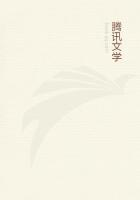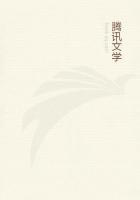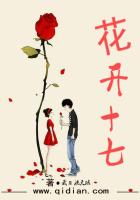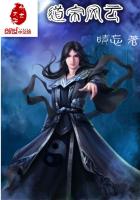THE BARBAROUS rites just described offer analogies to the harvest customs of Europe. Thus the fertilising virtue ascribed to the corn-spirit is shown equally in the savage custom of mixing the victim's blood or ashes with the seed-corn and the European custom of mixing the grain from the last sheaf with the young corn in spring. Again, the identification of the person with the corn appears alike in the savage custom of adapting the age and stature of the victim to the age and stature, whether actual or expected, of the crop; in the Scotch and Styrian rules that when the corn-spirit is conceived as the Maiden the last corn shall be cut by a young maiden, but when it is conceived as the Corn-mother it shall be cut by an old woman; in the warning given to old women in Lorraine to save themselves when the Old Woman is being killed, that is, when the last corn is being threshed; and in the Tyrolese expectation that if the man who gives the last stroke at threshing is tall, the next year's corn will be tall also. Further, the same identification is implied in the savage custom of killing the representative of the corn-spirit with hoes or spades or by grinding him between stones, and in the European custom of pretending to kill him with the scythe or the flail. Once more the Khond custom of pouring water on the buried flesh of the victim is parallel to the European customs of pouring water on the personal representative of the corn-spirit or plunging him into a stream. Both the Khond and the European customs are rain-charms.
To return now to the Lityerses story. It has been shown that in rude society human beings have been commonly killed to promote the growth of the crops. There is therefore no improbability in the supposition that they may once have been killed for a like purpose in Phrygia and Europe; and when Phrygian legend and European folk-custom, closely agreeing with each other, point to the conclusion that men were so slain, we are bound, provisionally at least, to accept the conclusion. Further, both the Lityerses story and European harvest-customs agree in indicating that the victim was put to death as a representative of the corn-spirit, and this indication is in harmony with the view which some savages appear to take of the victim slain to make the crops flourish. On the whole, then, we may fairly suppose that both in Phrygia and in Europe the representative of the corn-spirit was annually killed upon the harvest-field. Grounds have been already shown for believing that similarly in Europe the representative of the tree-spirit was annually slain.
The proofs of these two remarkable and closely analogous customs are entirely independent of each other. Their coincidence seems to furnish fresh presumption in favour of both.
To the question, How was the representative of the corn-spirit chosen? one answer has been already given. Both the Lityerses story and European folk-custom show that passing strangers were regarded as manifestations of the corn-spirit escaping from the cut or threshed corn, and as such were seized and slain. But this is not the only answer which the evidence suggests.
According to the Phrygian legend the victims of Lityerses were not simply passing strangers, but persons whom he had vanquished in a reaping contest and afterwards wrapt up in corn-sheaves and beheaded. This suggests that the representative of the corn-spirit may have been selected by means of a competition on the harvest-field, in which the vanquished competitor was compelled to accept the fatal honour. The supposition is countenanced by European harvest-customs. We have seen that in Europe there is sometimes a contest amongst the reapers to avoid being last, and that the person who is vanquished in this competition, that is, who cuts the last corn, is often roughly handled. It is true we have not found that a pretence is made of killing him; but on the other hand we have found that a pretence is made of killing the man who gives the last stroke at threshing, that is, who is vanquished in the threshing contest. Now, since it is in the character of representative of the corn-spirit that the thresher of the last corn is slain in mimicry, and since the same representative character attaches (as we have seen) to the cutter and binder as well as to the thresher of the last corn, and since the same repugnance is evinced by harvesters to be last in any one of these labours, we may conjecture that a pretence has been commonly made of killing the reaper and binder as well as the thresher of the last corn, and that in ancient times this killing was actually carried out. This conjecture is corroborated by the common superstition that whoever cuts the last corn must die soon. Sometimes it is thought that the person who binds the last sheaf on the field will die in the course of next year. The reason for fixing on the reaper, binder, or thresher of the last corn as the representative of the corn-spirit may be this. The corn-spirit is supposed to lurk as long as he can in the corn, retreating before the reapers, the binders, and the threshers at their work. But when he is forcibly expelled from his refuge in the last corn cut or the last sheaf bound or the last grain threshed, he necessarily assumes some other form than that of the corn-stalks, which had hitherto been his garment or body. And what form can the expelled corn-spirit assume more naturally than that of the person who stands nearest to the corn from which he (the corn-spirit) has just been expelled? But the person in question is necessarily the reaper, binder, or thresher of the last corn. He or she, therefore, is seized and treated as the corn-spirit himself.
Thus the person who was killed on the harvest-field as the representative of the corn-spirit may have been either a passing stranger or the harvester who was last at reaping, binding, or threshing. But there is a third possibility, to which ancient legend and modern folk-custom alike point.



